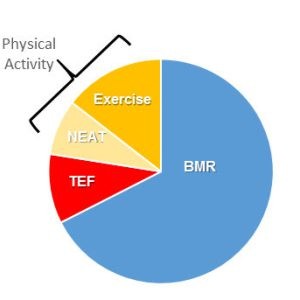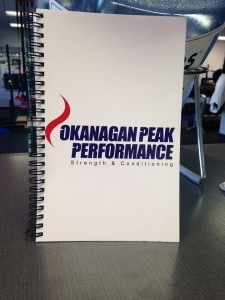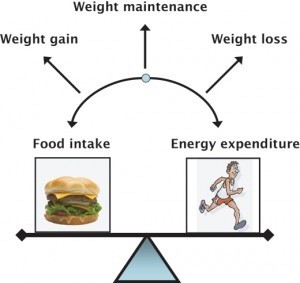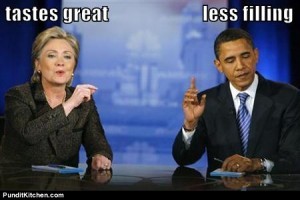Weight loss is an interesting topic these days. For some, bringing up the topics of keto, intermittent fasting, plant-based or some other popular nutritional topic of the day leads to heated discussions. Unfortunately, some conversations are prefaced with 'I believe...' and then whatever nutritional opinion follows. Emotions can become so strong with nutrition that facts and evidence get thrown out the window. And positions can be maintained as though defending a religious perspective. When discussing weight loss there are two predominant positions popping up on social media. One supposes that creating a caloric deficit is all that matters. You can eat fast food every day as long as you are eating fewer calories than you burn in a day. This ignores what the other position claims is vital, which is the quality of the nutrition. Maybe you've heard the expression 'as long as it fits your macros' to justify eating certain foods. By macros we're referring to the macronutrients i.e. proteins, carbs and fats. The truth is that both sides are correct. It matters how much you eat. A caloric deficit is needed to achieve weight loss. And the quality of the matters as well. You cannot achieve healthy weight loss with low quality nutrition.. But there's one more piece to the puzzle that typically tends to get ignored. And that's the timing of our nutrition. In other words, would you expect eating the same foods in the same amounts at different times to have an impact on our weight loss efforts? For example, if you ate a 2070 calorie breakfast, a 600 calorie lunch and a 330 calorie dinner... Would this have any difference on our fat loss efforts than if we ate the following: 330 calorie breakfast, 600 calorie lunch, 2070 calorie dinner. The answer is that it does...
Fitness Trackers - Are They For You?
How do you track your training sessions? At worst I'm hoping you have a notebook to record your loads, weights, reps, sets, rest breaks etc and be able to refer to this information from one workout to the next.[caption id="attachment_4190" align="alignleft" width="225"] A training journal is a necessity for those seeking the best results.With something as simple as bringing a notebook to the gym you'd think everyone would do at least this much. it doesn't cost anything and takes no extra time or effort. You can make all your entries during a rest break or immediately after training.But besides going old school and low-budget with a journal there a number of fitness trackers which will monitor and record everything from heart rate intensity and averages, caloric output and even sleep cycles at night.Recently, a study at the Iowa State looked at the accuracy of 7 different fitness trackers. Researchers looked at BodyMedia FIT, DirectLife, Fitbit One, Fitbit Zip, Jawbone UP band, Nike+ Fuel Band and the Basis B1 Band. BodyMedit Fit and the Fitbit Zip were found to be most accurate. And in a related story Nike may be killing off its fuel band in the near future.But back to the point of gadgets to track your caloric output I have never really been sold on them. I'll admit there are benefits to knowing what your heart rate data is and to monitoring the length of your workouts. However when you think about it these type of products are usually favoured by those with a few pounds to spare.And my concern is that individuals tracking how many calories they burned at Zumba or spin class will then see this as a credit to indulge later. For example, if a fitness tracker shows that I burned 473 calories sweating to the oldies can I...
Putting the Brakes on Your Metabolism
- Chris Collins
- Fitness
- Nutrition Advice
- 1651 Hits
- 0 Comments
-
Since we know how the body burns calories it would also make sense to understand what puts the breaks on our ability to burn calories. Or in other words what slows down our metabolism?Now there are a number of factors that influence our metabolic rate. An older person burns fewer calories than a younger person, usually dropping by about 2% per decade. So if there were such a thing as copies of the same person in their 20s, 30s, 40s and 50s at the beach the oldest version at the beach would have a 6% slower metabolism than the version of themselves in their 20s. This is due simply to the fact they got older.[caption id="attachment_4107" align="alignleft" width="300"] To rev up our metabolism we need to take off all the brakes.Now in combination with getting older and having a slower metabolism there is also the fact that testosterone drops as we age as well. From a peak in our twenties this hormone slowly declines starting in our thirties. With less of this anabolic in our body it is more difficult to build and maintain our lean body mass. As a result a smaller frame requires fewer calories to sustain it and our metabolism slows.And besides our age and hormones there are other things which can disrupt our metabolism including prescription drugs, our sleep patterns, our overall health and our body type. With many of these we can't do too much to influence our metabolism. For example, we can't go back and choose better parents to alter our genetics. And it's tough to stop time and prevent the aging process but some people do a pretty good job of staving off the effects of aging.So knowing that there are some aspects of our metabolism that are completely out of our control means we...
How the body burns calories
- Chris Collins
- Nutrition Advice
- 1720 Hits
- 1 Comment
-
In the last post I talked about the fact that for optimal health and weight loss we can't simply worry about reducing our sugar intake. As well, we can't simply focus on creating a caloric deficit. Both of these need to be addressed in order for healthy weight loss to occur. [caption id="attachment_4093" align="alignleft" width="300"] A caloric deficit is necessary for weight loss. Because here's the thing...we can all find examples of people who have lost weight on a diet consisting of poor quality nutrition. If you want to read the story of the science teacher who lost 37 pounds in three months eating only McDonalds click here. No one is disputing the fact that creating a caloric deficit will lead to weight loss. But does weight loss always equate to better health? Can you lose weight and become unhealthier in the process? Sure it's easy. Just eat McDonalds every day for 3 months. At the same time if all we are concerned with is reducing our sugar intake we may improve our health as evidenced by having some blood work done however we may lose much less than 37 pounds in 3 months. From the previous post we established that it's not an either-or scenario. We need to reduce our sugar and our calories. We need to worry about our mass and our health. But let's just look at weight loss for the time being. How do we attack weight loss? Well we need to create a caloric deficit. In other words we need to expend more calories than we consume. And as we already mentioned numerous times on this blog our sugar and overall caloric consumption is constantly increasing. And it seems unlikely that any of us are going to find a 25th hour in the day and begin...
The calories v. sugar debate
- Chris Collins
- Fitness
- Nutrition Advice
- 1667 Hits
- 1 Comment
-
So recently on the interwebs there was a bit of discussion on a social network about the importance of sugar in the diet. Actually it was more than just a discussion as some members took to mocking the other side who then responded to blocking the immature commenter from their profile.Now what that is all about was the fact that one group was of the belief that the increased consumption of sugar is the culprit of our deteriorating health i.e. obesity, metabolic syndrome etc. And the other side was dismissing the notion of sugar being responsible and favouring the opinion that increased calories were the root cause of society's declining health.A couple of points on this:1. This isn't religion and we don't need to get overly offended about the position of another individual or group based on what they believe with respect to nutrition.2. The two positions aren't mutually exclusive. Why can't we believe both positions? In other words isn't it possible that we are both eating more calories and eating more sugar today than we ever have in our history? It kind of seems like a silly 80s beer commercial.[caption id="attachment_4085" align="alignleft" width="300"] It doesn't have to be just one.So it is possible for both sides to be right. We are consuming more sugar than we have in our history and we are consuming more calories as well. The solution doesn't have to be one or the other in terms of reducing calories or reducing sugar. The answer should be both.And this is something we have been preaching to our clients for as long as I can remember. Actually I can remember as it was something I learned from an American colleague of mine at a conference in Colorado. You see as soon as I realized Shawn was a registered...
Exactly how many calories does (xxx) workout burn?
- Chris Collins
- Training
- 1783 Hits
- 6 Comments
-
Hi there: I hope you had a great Hallowe'en weekend. It's such a great time of year to be able to let loose and be a kid again for a night. And possibly the next morning if you promise to wear your costume the following Saturday AM for a stairs workout. Looking back this probably wasn't the smartest thing I've decided to do but I did it and hopefully it lightened the mood for those that came out for the workout and helped them work a little harder. Below you can see a picture of Wonder Woman, Les Grossman and Kat Von D.I've got some video footage from the Saturday morning workout and will try to work that into a future post.Switching gears here a little bit I want to let you of a device I'm testing out. It's called a BodyBugg and it measures you caloric expenditure. You wear it around your left arm and it records how many calories you expend during day.Now some people will be thinking 'I have a heart rate monitor that tracks my calories so how is this any different?'True, a heart rate monitor provides an estimation on calories burned but it isn't very accurate. Basically the caloric measurement from a heart rate monitor correlates to how many calories would typically be burned at a particular heart rate.So first of all we realize this is an estimation and therefore is not a totally accurate method of tracking your calories. But secondly your heart rate monitor has no way of detecting whether an increased heart rate is due to physical exertion or a hightened emotional state. For example if you wore your heart rate monitor to a scary movie you might get a number of spikes during the frightening scenes of the movie. And your heart rate monitor would...





